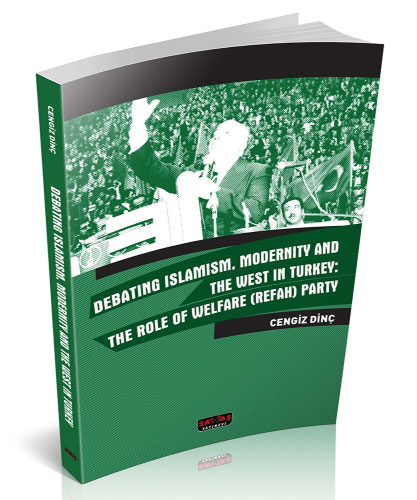
Introduction
Chapter 1: Modernity and Its Content
Chapter 2: Islamists, Modernity and The West
Chapter 3: The Welfare Party and Islamism,
State, Secularisation and Democracy In Turkey
Chapter 4: The Welfare Party and Turkish Nationalism, Turkish Economy, Capitalism; Science, Technology, Industrialisation; Modernity and The West
Summary and Conclusıon
Bıblıography
ABSTRACT
This study focuses on the Welfare Party elite’s conceptualisation of modernity during the party’s last 4-5 years before its closure in 1998. Since the party was the most important Islamist organisation in Turkey, it was at an important point of interaction between Islamism and modernity. The study tries to determine the significance of the WP discourse on key modernisation issues by answering such questions as how the WP elite conceptualised modernity; how this conceptualisation was formulated, constructed and what was modernity’s relationship with the West in their view. It argues that, the WP elite had a distinct (Islamist) understanding of modernity which, despite its differences in its approach to some basic issues (e.g. secularism) overall remained within modernity by sharing most of its major characteristics. The WP elite, similar to many other Islamist movements, advocated a more Islamic (less secular and less Westernising) route to modernity; and they could not be considered as anti-modernists.
The study contributes towards a better understanding of the critical role that a version of Islamism plays in Turkey’s politics and process of modernisation and provides insights about the impact of Western modernity on the sizeable Islamist section. The study employs important concepts such as secularisation, nationalism, the modern state, economic development (science, technology, industrialisation), capitalism and democracy as important components of modernity. An analysis of the views of the WP elite with regard to these concepts and processes serves to better understanding the Islamist stance towards the particular path of modernisation in Turkey, modernity in general, and also the West.
ACKNOWLEDGEMENTS
This book is a shortened and simplified version of my PhD thesis, completed in the autumn of 2005, and not updated after 2007 or so. As explained later, since the period under study occupies a central place in the recent history of Turkey and deserves to be investigated on its own merit and lack of time on my part, unfortunately there is no updates. (Once again, I would like to express my deep gratitude to Prof. Dr. Tom Gallagher, Dr. John Russell and Dr. Ruth Lister as my supervisors at Bradford University).
(I would like to thank Prof. Dr. Fazıl Tekin from Osmangazi University who supported me in critical times and my friends, Etem and Semih. I also thank Assoc. Prof. Dr. Sait Açba and some other WP officials for providing me with some documents of the party and sharing bits of their minds).
I am grateful to Mehmet Dikkaya ve Barış Gezerkaya for their support in the publication process.
I also thank all members of my family.
Of course, the defects of the study are entirely my own.
Cengiz DİNÇ (Assoc. Prof. Dr)
Eskişehir Osmangazi University ([email protected])
https://iibf.ogu.edu.tr/Personel/Detay/64/doc-dr-cengiz-dinc
(A FEW WORDS)
Due to a number of reasons, official publication of my thesis is belated around 10 years. Still, I do believe that the information and analyses here are not only valuable on the aforementioned period; they also naturally form a background for the crucial developments in Turkey since 2002, especially in the last 2-3 years, despite the fact that the AK Party claimed that it is not Islamist but conservative-democrat (most if not all serious experts on Turkey continued to treat the AK Party as Islamists (former Islamists) for lack of a better word capturing the true nature and policies of the Party). Thus, the analyses here, in some 108 thousand words, provide a fertile ground for further studies to compare and contrast the AK Party with the Welfare Party to see continuity and change, what went right and what went wrong (also to other forms of comparisons, e.g. with other regional Muslim countries) (December 2017, Eskişehir, Meşelik).